#early queer film
Text
The End of a Very Long Month - Diary of a Big Ole Gay
Hey Whores, this is the pretty much the diary entry for the rest of the month of April, also I am almost finished with this fucking watchlist. Which is really exciting, a sword of damacoulas over my head fully swallowed.

(I honestly just wanted a Rocky Horror Clip for shit and giggles)
but at the same time I now have so many leads and little films that I want to watch to complete the collection. Sure I don't need to watch George et Georgettes, (the french version), or Theres Three but like I might as well I've literally seen every single other film that people talk about.
but enough navel-gazing thats for later.
Lets get into the Good Stuff

Winter Kept Us Warm (1965) dir. David Secter
A movie that was so subtle gay that the actors didn't even realize thats what they were going for. No, Like for real, that is like a real thing people say about this movie.
Overall this was like a super cute movie. It was just about two guys just meeting in college and vibing and like having quickly developing a deeply intamint and insular relationship something that straight people totally do.

They were totally like ROOMMATES
anyway as a gay man who totally also didn't have a really close friendship that made me realize that hey maybe I'm into dudes this shit made me feel called out.

The Sergeant (1968) dir. John Flynn
Yeah, this kiss is noncon. Sorry to tell you.
The Sergeant is about this older guy who basically has this super toxic working relationship with this enlisted man who he essentially forces to be his secretary.
They have an uneasy friendship with The Sergeant being at turns extremly friendly and extremly cold to this man and his boring wallpaper of a girlfriend.
Anyway the whole reason thats hes like that is that HE IS A FAGGOT, HE IS A DRUNKARD, HE IS CORRUPTING THE FRENCH ARMY WITH HIS ... DEGENERACY!!!!!!
and after the dude rejects him because hes not a homo, The Sergeant just straight up fucking kills himself.
THANKS I HATE IT.

The Killing of Sister George (1968) dir. Robert Aldrich
ok first that is the cutest GIF I've ever seen.
Anyway this ones about LESBIANS HAROLD. These woman GAY, there in a fucking relationship. THEY KISS HAROLD! and they FUCK!
So yeah this was if I rememeber correctly based on a comedy play and the movie turns it into a drama but they kind of fail so its basically like a gay ass camp melodrama and I'm a little hear for it.
I do have to say that the Titelul SIster George is like TOXIC AF but I mean sos Dr. Frankfurther and I still want them to fuck me.

This film is mainly centered around an actress named June Buckridge who plays in this kind of petticoat junction, call a mid-wife type show as a sweet little nun named Sister George, (yes I know that Sisters and Nuns are techically different suck it). She is also *gasp* about to be killed off.
What follows is the fall out of that decision and her extremly toxic relationship between her and her girlfriend. Theres definetly a DMLG aspect to their relationship as well as just generally BDSM and it borders on abusive. But also just woman who like woman dressed as like fucking laural and hardy which is so fucking gay.

They knew what they were doing.
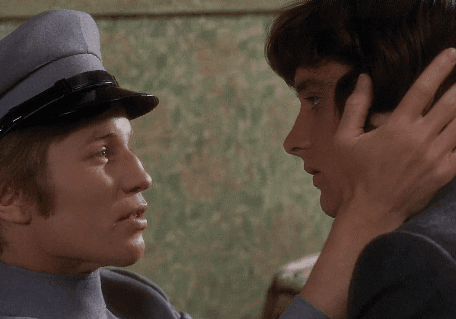
Something For Everyone (1970) dir. Hal Prince
So a couple months ago I watched this really awful porno called The Switch is on with this Guy named Jeff Stryker. So theres this one scene where Stryker is fucking this chick and her husband comes in and just starts getting cucked but then this guy just gets so fucking horny for what can only be described as a sexy bowl of oatmeal that he literally pushes his wife aside and is like UWU fuck me and Jeff Stryker without a single reaction just preceeds to start fucking this guy. It was like watching some type of milling machine and the worker just put a different grain of wood in. What I'm saying is that if your going to watch porn support actors that actually work on being entertaining and present in there sex play.
The other reason why I bring this up is that this is like if one of those Catalinina Bi-Features was actually well thought out, (this obviously excuses Bi-Coastal which is probably one of my favorite pornos ever).
This is a Comedy of Manners were a bisexual disaster who stoacicly fucks everyone trys to sleep his way into getting a castle.
There isn't a lot of PDA with the man he seduces but its actually really nice that they validated the fact that this man can be bisexual and also have like a honest to goodness relationship with this guy, and his sister, and his wife, and HIS MOM. what can I say theres SOMETHING FOR EVERYONE *Roll Credits*
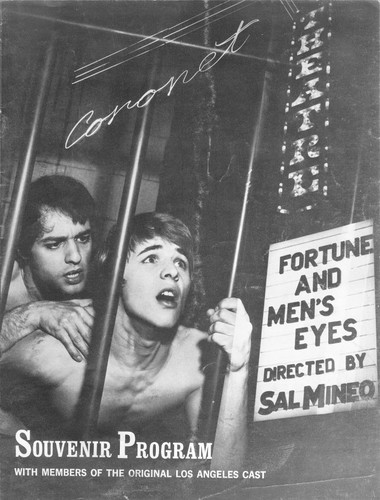
Fortune and Men's Eyes (1971) dir. Harvey Hart
Ok thats a slutty image.
So heres the thing this movie is very gay. Its all about men who want to fuck other men. Sexual. It also, unfortunetly, frames that sexual desire purely through the lens of male rape and explotation.
This is a film about having a prison wife or being someone old man and a lot of the queer relationships are explotative and sexual abusive. A lot of these men are being sexual abused. Which is not a lovely time with the gays.
The film does raise a lot of interesting notions around how situration homosexuality remains seperate from normative queerness or at least simply becames another aspect of normative masculinity and in that lens I think its important to watch and study this film. But I wouldn't say watch this for fun.
Also Michael Greer does a full on drag number and this shows us his dick. Iconic faggot behaivor, we stan.
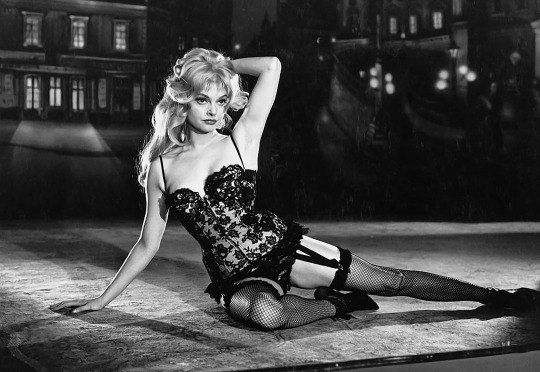
Lulu (1962) dir. Rolf Thiele
Ok I think I would have remembered this scene because she looks super fucking hot in that photo. heres whats up.
This is an adaptation of the Lulu Cycle plays by Wedeman the same plays that G.W.Pabst adapted however this chick is not in louise brooks and I'm going to hold that against her.
also this movie was like super hard to get into and follow. Which I didn't have that issue with the original 1930's film. This movie also just doens't have the right energy for me. I'm sorry but Pabst made a masterpiece. Pabst woke up and said I'm gonna make a movie that goes so hard that it will be a faggots laptop background for like 5 months straight and it is.
This is like um ok theres some hot people but its not that gay. so ew.
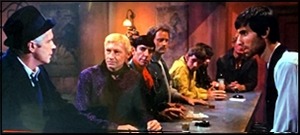
P.J. (1968) dir. John Guillermin
So P.J is another one of these schlocky action detective movies from the 60s that were really popular and this one just so happens to have a gay bar in it.
The scene is very explotative and not in the best way to be honest. Like I love that the fags are just another group of generic ruffians for this saturday morning cartoon and that they even like beat the shit out of him. (one guy scatches him which is first HOT and also a lot to unpack). I also compare the scene to the Dyke Bar in Foxy Brown but theres a few differences.
the dyke bar has both like Femme and Butch women where the gay bar basically only has men who look like Liberace
In Foxy Brown she essentials claims or acts as the guardian for a woman that shes trying to get information out of the woman in these scenes take on a auru of queerness were as P.J. stands as stark opposition to the queer community
The Dyke Bar scene actually makes sense in context with the film. Whereas this film just feels like it shoehorns in a gay bar. For reasons. Reasons that arn't important or neccisary to the plot.

Deathwatch (1966) dir. Vic Morrow
Ok so this is based on play by noted faggot Jean Genet who also did that other hot prison movie.
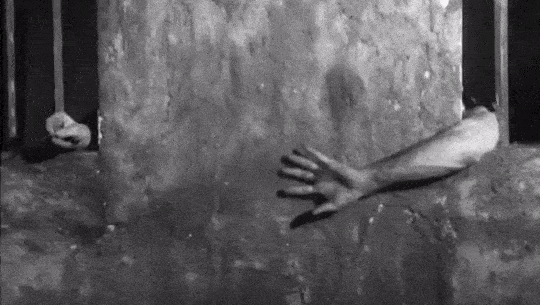
So in this one Leanord Nemoy and a bunch of other guys basically fight over who gets to bang there hot illeterate cellmate. Its very gay but its also more a lot of homos doing theater and less them actually fucking and sucking like in Un Chant d'amour.

Theorem (1968) dir. Pier Paolo Pasolini
Ok this was my first Pasolini film which I watched in Spanish of all things for reasons. The Reason being that that was the only version with subtitles. Luckily this film is famously light on dialogue.
This one is a little bit like Something for Everyone except a lot more surrealistic.
The Stranger comes to a novea riche family gives them all a good fucking, (including the maid), and then just fucking leaves. They then proceed to have like a religious experience over it???
This is Pasolini so its really weird and allegorical but also like super fucking cool. Damn now I want to rewatch it.

Pink Narcissus (1971) dir. James Bidgood
Ok just imagine if Kenneth Anger made a full length feature porno and this is basically that. A young male prostitute lazes about his apartment and has a series of erotic dreams.
As a movie Its giving hints of Anger as well as de Rome and it is just an insanely weird/cool/kinda hot thing to look at.
Its on Internet Archive btw.

Fellini Satyricon (1969) dir. Federico Fellini
Ok so this is like one of those old ass Bible story epics from the 30s except its based on a roman novel or history or something and also it is the GAYEST thing you've ever seen. Basically this hot blonde guy rescues his twink husband from a guy dressed as a pig (don't ask), then they fuck, then his brother shows up and just like steals his husband and then there entire neighborhood collapses in an earthquake. After that I stopped asking questions and I'm pretty sure we don't see his hot twink husband again so RIP i guess.
To be honest I have no idea what happened in this movie but it sure was cool and i need to watch more Italian cinema.
Anyway whores thats enough out of me today. I'll probably return near the end of may with the last 10 or so films left on the watchlist.
#diary#early queer film#finding the first gay kiss#Winter Kept Us Warm 1965#The Sergeant 1968#The Killing of Sister George 1968#Something for Everyone 1970#fortune and men's eyes#Fortune and Men's Eyes 1971#Lulu 1962#P.J. 1968#Deathwatch 1966#Theorem 1968#Pink Narcissus 1971#Fellini Satryicon 1969#slurs reclaimed#suicide CW#homophobia CW
4 notes
·
View notes
Text
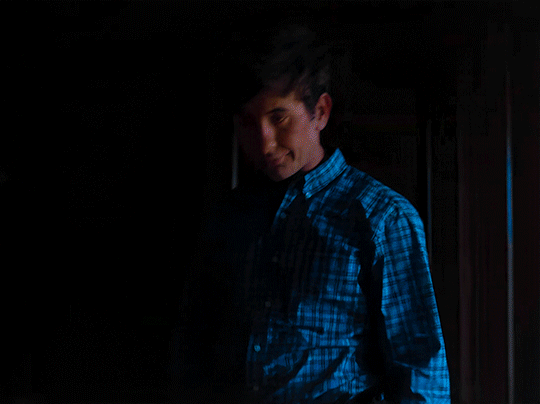
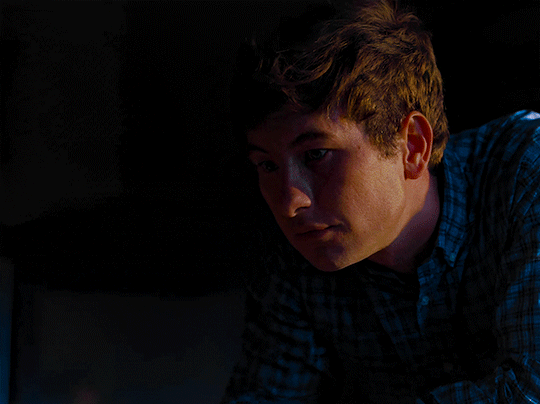
SCENES FROM A MARRIAGE | 🫦 Teasing
Felix & Oliver · Saltburn (2023) · dir. Emerald Fennell
The moments between Oliver and Felix…there's a kind of constant tease sort of going on. Felix sort of knows the effect he has on people and he's sort of very comfortable playing with that. -dir. Emerald Fennell
#this scene felt like a 'no. not while in my parents' house' sorta tease 👅🤤#saltburn#saltburn 2023#barry keoghan#jacob elordi#filmedit#perioddramaedit#film#movie#queer#lgbt#felix x oliver#homoeroticism#emerald fennell#periodedits#oliver quick#felix catton#period drama#early 2000s#beautiful men
5K notes
·
View notes
Photo
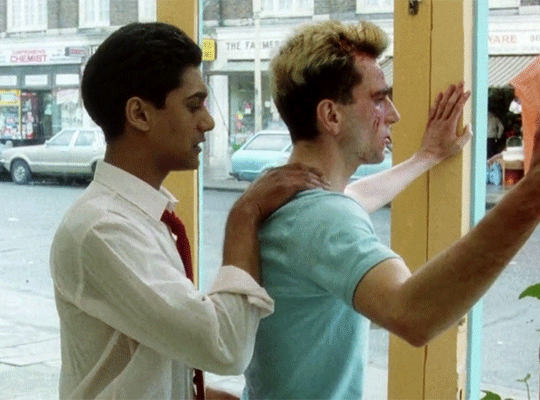

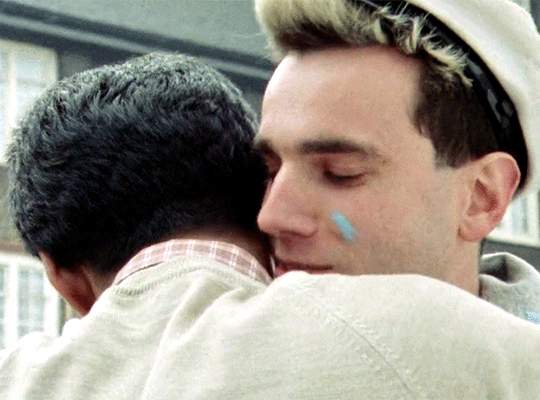
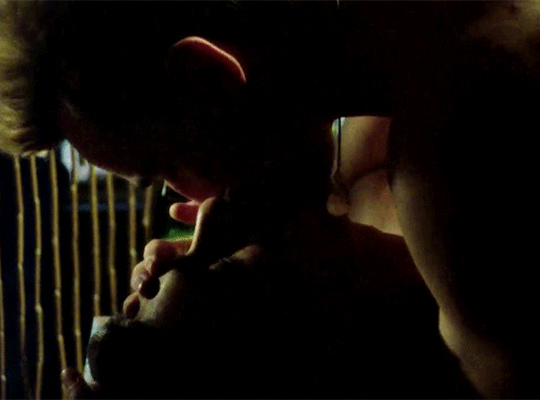
LGBT HISTORY MONTH SERIES → 1/28 - my beautiful laundrette (1985)
Starring Daniel Day–Lewis and Gordon Warnecke, and directed by Stephen Fears with an Oscar-nominated original screenplay by Hanif Kureishi, My Beautiful Laundrette broke major ground in its bold exploration of race and sexuality in Thatcher-era London. The film’s depiction of, and significance to, British South Asian and LGBTQ+ communities cannot be overstated. via studio voltaire
#my beautiful laundrette#ddl being method and threatening to break the director's leg or something? wild#daniel day lewis#daniel day-lewis#gordon warnecke#lgbtfilm#lgbtcinema#film4#movieedit#filmedit#romancegifs#spreading the good word to the people (ddl lewis spitting champagne)#this film is about more than queerness but lgbt history month innit#if you saw me post this early no u didn't#lgbthistorymonth#lgbthm23
455 notes
·
View notes
Text
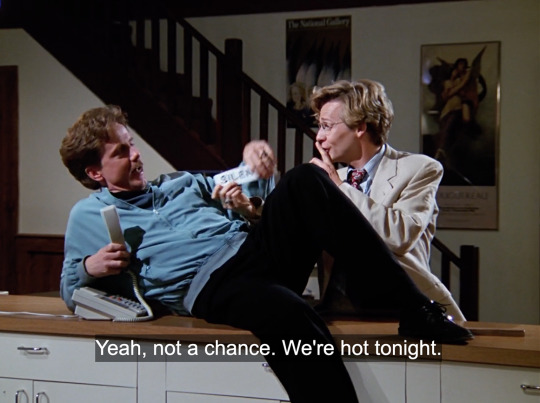
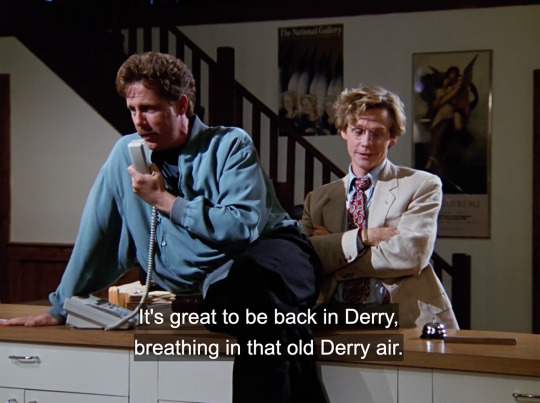
Stephen King's IT, 1990, dir. Tommy Lee Wallace
#god they are so in love it's sickening#to be clear#i read the book at 13 back in the early 2010s and i have always read eddie as closeted#tho i mostly read him as in love with bill#but the newer films have sold me on richie and eddie#theyre cute#horror aesthetic#horror movies#horror quotes#it 1990#queer fear
114 notes
·
View notes
Photo

#also like who amongst us has not consumed smut and/or stuff with queer relationships in this fandom like get real lmao#y'all are really just parroting the peter jackson film antis from the early 2000s but in a far more racist and obnoxious manner#lotr#trop#the rings of power#trop fandom#memes#jrr tolkien#not an incorrect quote#haters leave us alone challenge
232 notes
·
View notes
Text
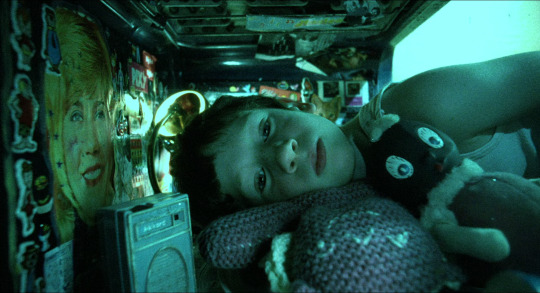

Hedwig and the Angry Inch (2001)
Director: John Cameron Mitchell
Cinematography: Frank G. DeMarco
Production Design: Thérèse DePrez
Art Direction: Nancey Pankiw
#cinematography#film stills#movie stills#hedwig and the angry inch#john cameron mitchell#cult classic#queer film#i could write a dissertation about this movie and not entirely in a good way#2000 films#early 2000s#2000s movies#2000s aesthetic
136 notes
·
View notes
Text
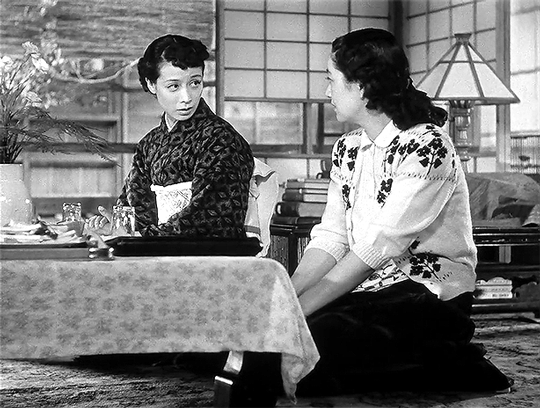
“Early Summer is about the difference between the married and the unmarried, how the married try to persuade or (worse) coerce the unmarried into getting married, and how maybe that isn’t always such a good idea. This theme is explicitly called out more than once in the film.
Early Summer further implies that there may be a good reason why some unmarried people, including Noriko (but not just Noriko), don't want to marry: they may be “that type of person,” as the young lesbian Fumi described herself in Takako Shimura's manga Aoi hana. This subtext rises briefly to the level of text at least once before being ambiguously dismissed.
Both Ozu and Hara remained unmarried until their deaths, and to my knowledge neither were ever credibly reported as having a romantic relationship with anyone. Per Donald Richie’s commentary on the Criterion release (referenced in the next post), Ozu was reported to become angry at any talk of his marrying. Meanwhile Hara, though termed “the eternal virgin” by a film producer for her film image, in real life had close friendships with many women, including a hair and makeup artist whose friendship with Hara began early on and continued after Hara retired into obscurity at the height of her career.
In modern terms we could therefore hypothesize Early Summer as a queer film subtly but firmly protesting compulsory heterosexuality, made by a (possibly) queer director and starring a (possibly) queer actor.
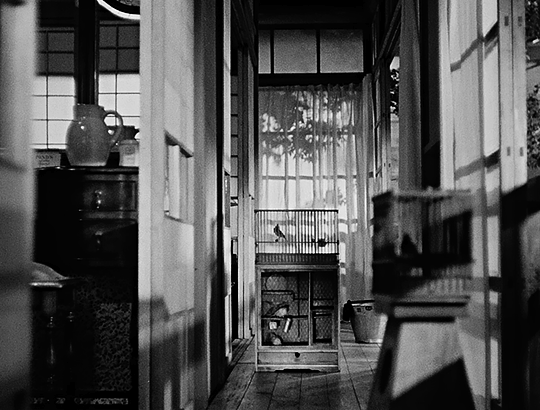
…
Early Summer opens with three establishing shots: first a shot of a dog walking freely on the beach with the ocean in the background, then a shot of a single bird in a cage outside, and then a final shot of birds in cages inside a house. This is the house in the oceanside town of Kamakura in which Noriko (Setsuko Hara’s character) lives, along with her brother Kōichi (Chishū Ryū), his wife Fumiko (Kuniko Miyake), Noriko and Koichi’s father (Ichiro Sugai) and mother (Chieko Higashiyama), and Kōichi and Fumiko’s two young boys.
If we wish, we can interpret the first and third shots as showing a strong contrast between freedom in nature on the one hand, and the restrictions imposed by society and the Japanese family system on the other. In this interpretation the second shot represents Noriko, who has a degree of independence that her mother and Fumiko do not have, but is still constrained by the bonds of family and society.
In the following scenes Kōichi takes an early train to his job as a physician, while Noriko goes to the Kita-Kamakura station to catch a later one. There she meets Kenkichi, another physician who works with Kōichi and who (along with his mother) is the family’s next-door neighbor. Kenkichi tells her that he’s been reading a book, implied to have been recommended by Noriko. The Criterion release describes it only as “this book,” but the BFI release names it as Les Thibaults.
Les Thibaults (published in Japanese as Chibō-ka no hitobito, and apparently relatively popular in Japan at the time) is a multi-volume French novel that begins as one of its protagonists is discovered writing passionate messages to a fellow schoolboy — something Ozu himself was apparently falsely accused of — and is then separated from his friend. Later volumes describe their diverging paths in life. Why might have Noriko recommended this particular novel to Kenkichi? Hold that thought.
We then see Noriko at work, as a secretary and executive assistant to the head of a small firm (Shūji Sano). As she talks with her boss regarding café recommendations, her best friend Aya (Chikage Awashima) arrives, there to collect payment for the boss’s spending at the restaurant her mother owns. Noriko’s boss wonders when they’ll both get married, and refers to them as “old maids.”
(Before becoming a movie actress, Chikage Awashima was a musumeyaku top star in the Takarazuka Revue and occasionally played “pants roles,” i.e., as a female character dressing as a man for plot reasons. Osamu Tezuka was a fan of hers, and she supposedly inspired the main character Sapphire, “born ... with a blue heart of a boy and a pink heart of a girl,” in his manga Princess Knight. Why might this be relevant to Early Summer? Again, hold that thought.)
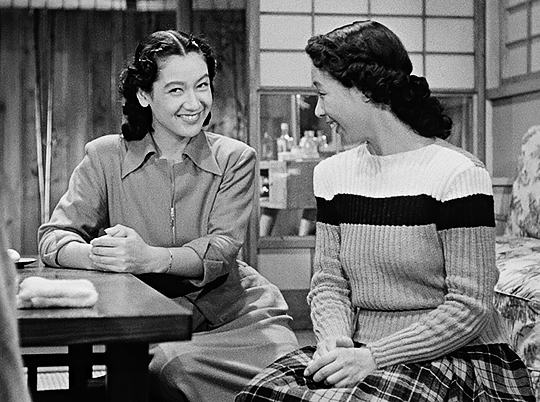
After work, Noriko meets Kōichi and Fumiko for dinner. While they eat, Kōichi complains about post-war women (“[They’ve] become so forward.”) and Noriko corrects him: “We've just taken our natural place.” Kōichi then claims that’s why Noriko can’t get married, and she rebukes him: “It’s not that I can’t. I could in a minute if I wanted to.” (Note: a bit of foreshadowing here.)
Next occur the two key events that set the main plot in motion. First, Noriko’s great-uncle (Seiji Miyaguchi) arrives for a visit. He wonders why she isn't married yet. “Some women don't want to get married,” he tells her. “Are you one of them?” Noriko laughs and leaves the room, but the seed has been planted in the minds of her family.
Noriko’s boss also thinks it's time for her to get married, and he has just the man for her: “He’s never been married. Not sure if he's still a virgin.” Her boss has photographs to show her, and won’t leave her leave without taking them.
Meanwhile Noriko and Aya mercilessly tease one of their married friends, and after attending another friend’s wedding have dinner with that friend and another married friend, with a side dish of sexual innuendo. One of the married friends brags about how she spent a rained-out honeymoon playing with a “spinning top”: “My husband is very good at it.” Her friend cautions her: “You shouldn't flaunt it in front of the single girls.”
However, Aya is not impressed with the implied amazingness of heterosexual intercourse: “Silly! We don’t play with tops, do we?” Noriko enthusiastically agrees with her: “That’s for children, isn’t it?” The debate between the married and the unmarried continues, after which Noriko goes home, where Kōichi and Fumiko are scheming regarding the marital candidate proposed by Noriko’s boss.
Kenkichi’s mother then visits Noriko’s mother, and tells her that a man from a detective agency has been asking about Noriko: “I realized it was about her marriage.” We also learn that Kenkichi’s wife died two years ago (leaving him with a young daughter), and that he's not interested in remarrying: “All he does since his wife died is read books” (like Les Thibaults). Finally, we learn that Kenkichi’s best friend, Noriko’s brother Shoji, went missing in the war.
We now come to the climax of the first half of the movie. As Noriko’s nephews and their friends play with their model train set downstairs (one nephew asking if their father will buy them more train track), Aya visits Noriko and they talk in her room upstairs. Their married friends have made various excuses for why they couldn’t also visit; Noriko recalls how close they were at school and laments their drifting apart.
Throughout the first half of Early Summer Noriko and Aya are shown as mirroring each other’s gestures and speech. That mirroring continues in this scene (for example, they sit down next to each other at the exact same time and in the exact same manner), and then a very interesting thing happens. Ozu’s typical modus operandi is to continue a shot until someone stops speaking or moving, or even until they leave the room. But here he cuts immediately from Noriko and Aya simultaneously raising their glasses to drink, to Noriko’s father and mother simultaneously bringing food to their lips, as they relax sitting on a street curb in town.
If I were to speculate about what this juxtaposition might mean, if anything, I’d speculate as follows: that Ozu intended to show that, whatever Aya and Noriko might be to each other, they are as close, secure, and happy in their relationship as Noriko’s mother and father are in theirs — as much a couple as any other in the film, but not formally recognized as such.
Noriko’s father tells his wife, “This may be the happiest time for our family,” although he’s sad at the thought of Noriko leaving. They continue their conversation, and then are interrupted by the site of a balloon rising into the sky. “Some child must be crying,” Noriko’s father remarks. “Remember how Kōichi cried when he lost his balloon?”
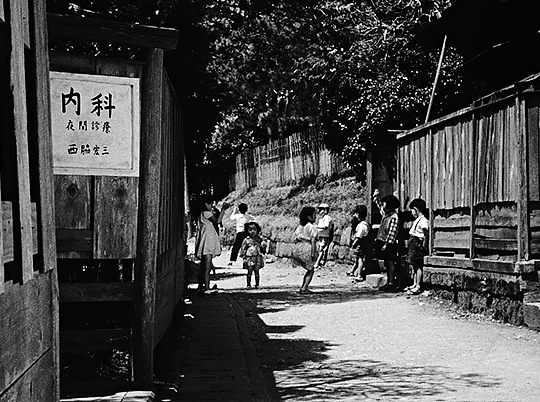
…
The good times continue as Noriko brings home a cake to eat with her sister-in-law Fumiko, and their neighbor Kenkichi drops in unexpectedly and is invited to share it with them. The scene re-introduces Kenkichi and brings up the subject of his remarrying — something he doesn’t want, but his mother (played by Haruko Sugimura) does.
…
In the meantime Noriko’s brother Kōichi has been pursuing the idea of a marriage between Noriko and an unseen bachelor first suggested by Noriko’s boss, including asking his friends and associates for more information on the proposed groom. The results are “very promising”: “He’s in the social register, and seems to be a fine businessman.” “How nice,” replies his mother, but, “how old is he?”
…
Then Noriko’s boss asks a few questions that we’ve been asking ourselves. While Noriko is away from work, Aya stops by, and the boss questions Aya on whether Noriko will go through with the match or not: “I don't understand her ... Is she interested in men?” Aya at first demurs: “What do you think?” Noriko’s boss has seen indications both ways, and presses the question: “Has she always been like that?” Aya responds in the affirmative. The questioning goes on. Aya tells him that Noriko’s apparently never been in love, “but she has an album of ... Hepburn photos this thick,” holding her thumb and forefinger about 4 centimeters apart.
Here we have the first of two translation issues. Aya actually refers to “Hepburn” without mentioning a given name. The Criterion subtitles — by Donald Richie, who should have known better — make this a reference to Audrey Hepburn, who’d had only small roles by then. It’s almost certain that this is instead a reference to Katherine Hepburn, who was a major star by the time Noriko would have entered middle school. Was the teenaged Noriko besotted by the androgynous beauty of Katharine Hepburn (who would have made a stunning otokoyaku)? It sure looks like it.
The subtext now threatens to become text, as Noriko’s boss learns that “Hepburn” refers to an American actress, and asks the obvious follow-up question about Noriko. In the Criterion subtitles it’s translated as “So she goes for women?” The BFI translation puts it more bluntly: “Is she queer?” What is Noriko’s boss really asking? Japanese speakers can correct me here, but I believe his actual question uses the term “hentai.”
Western fans are used to thinking of “hentai” as referring to pornography. However, my understanding is that at the time of the film “hentai” in colloquial Japanese would have referred specifically to sexual behavior that was considered abnormal. So if Noriko’s boss did use the term, another possible translation might have been “Is she a pervert?” Both the Criterion and BFI translations soften the question; in particular BFI’s “is she queer?”, while defensible, risks projecting our current ideas about “queer” (including its positive connotations) onto a film created in a different time.
In any case, Aya is determined to shut down any discussion of Noriko’s proclivities. “No!” she firmly replies. Noriko’s boss is apparently unconvinced: “You can never know. She’s very strange, in any case.” His prurient instincts aroused, Noriko’s boss then envisions another solution to the problem of Noriko, and queries Aya about it: “Why don’t you teach her?” “About what?” “Everything.” “What do you mean, everything?” He pats her shoulder and admonishes her: “Don’t try to be coy,” as we viewers pause to consider the implications of what he’s asking her to do.
Aya rejects this line of inquiry as well: “Don’t talk to me like that! That was rude!” Noriko's boss laughs, offers a half-hearted apology, and then (after telling Aya that Noriko won’t be back that day) invites her to lunch and quizzes her on her preferences in sushi: “Tuna” she says. He continues, “How about an open clam?” (which Donald Richie's commentary helpfully informs us is a euphemism for the vagina). “Sure,” she replies. “And a nice long rice roll?” “No, thank you!” His final words are, “You’re strange too,” and again I think I hear the word “hentai” enter the conversation.
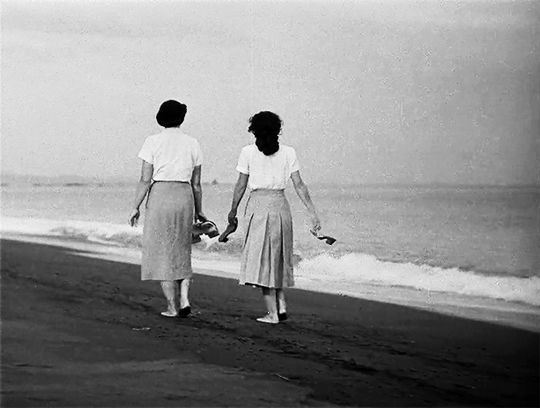
…
Recall that Kenkichi decided to accept an offer as a department head in a hospital in Akita, several hundred kilometers north of Tokyo and on the opposite coast. Noriko meets him in a café before her brother Kōichi is to host him at a farewell dinner party, and they talk about Shoji, Noriko’s other brother who went missing in action during the war. Kenkichi recalls how he and Shoji were best friends in school, often eating at this very café, indeed at this very table. Kenkichi tells Noriko that he still keeps a letter that Shoji sent him, with a stalk of wheat enclosed (probably indicating that Shoji was deployed in northern China). Noriko asks if she can have the letter, and Kenkichi agrees.
Afterward Noriko visits Kenkichi’s mother, while Kenkichi himself is still at his farewell party. Kenkichi's mother tells Noriko her secret dream (“please don’t tell Kenkichi”): “I just wish Kenkichi had gotten remarried to someone like you.” She apologizes and asks Noriko not to be angry (“It’s just a wish in my heart”), but Noriko stares at her with an intense expression (her usual smile absent), and asks her, “Do you mean it? ... Do you really feel that way about me?” Kenkichi’s mother apologizes again, but Noriko presses on: “You wouldn’t mind an old maid like me?” Then before Kenkichi’s mother can respond, Noriko speaks: “Then I accept.”
Kenkichi’s mother is incredulous. She asks Noriko several times to confirm what she’s saying, thanks Noriko effusively and weeps tears of joy at her good fortune, but continues to question Noriko about her decision even as Noriko leaves to go home. (Incidentally, this scene features a bravura performance by Haruko Sugimura.)
After she leaves the house, Noriko encounters Kenkichi, just returned from his farewell party. Noriko exchanges some small talk with him, but says absolutely nothing about what she just told his mother.
Noriko's decision then plays out across multiple scenes:
At first Kenkichi doesn’t understand what his mother is trying to tell him (“She accepted.” “Accepted what?”). When he finally gets the message (“She agreed to marry you. To become your wife!” “My wife?” “Yes. Isn’t it wonderful?”), he looks absolutely gobsmacked. His mother breaks down in tears again telling him how happy she is, and how happy he should be. He tries to play along (glumly echoing, “Yes, I’m happy”), but he looks for all the world like a man who would sooner eat nails than enter into another marriage.
Kenkichi’s mother doesn't understand why he’s not happy. She concludes, “What an odd boy you are.” The Japanese word here appears to be “hen,” which I understand to be a softer adjective than “hentai,” and not sexual in nature. But note that Kenkichi is now the third person after Noriko and Aya to be referred to as not normal in some way.
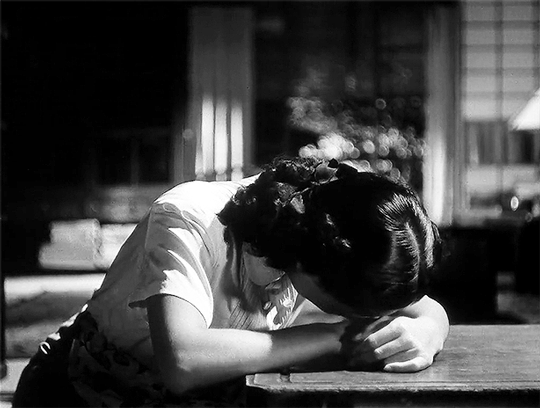
Meanwhile Noriko is interrogated about her decision by her family, especially by Kōichi, in a beautifully framed and shot scene — Noriko in white, her head bowed, her brother in black, barking questions like a prosecutor cross-examining a criminal. Noriko is unrepentant: “When his mother talked to me, I didn’t feel a moment’s hesitation. I suddenly felt I’d be happy with him.” Her parents retire upstairs to chew on their disappointment — Noriko walking silently past them on her way to her room — while Kōichi tells Fumiko, “What could we do now? She’s made up her mind. You know how she is.”
…
Meanwhile Noriko and Aya have their last scene together. It starts by echoing and completing the action at the end of their previous scene: then they raised their glasses together to drink, now they lower their glasses in a simultaneous gesture. Aya tells Noriko that she can’t believe Noriko would ever end up like this: she thought Noriko would be a modern woman living “Western-style, with a flower garden, listening to Chopin,” “wearing a white sweater, with a terrier in tow,” and greeting Aya in English — “Hello, how are you?”
Instead Aya now imagines Noriko wearing farmers clothes in rural Japan, speaking the local dialect. She playfully imitates country speech, and Noriko responds in kind: “Ya don’t look it, but ya talk like the locals.” “I figure to live in Akita when me and my man get hitched.” The subtext here I read as follows: Noriko knows how to pretend to be something she is not — a conventional heterosexual woman in a conventional heterosexual marriage — and she will accept doing so in her self-imposed exile from Tokyo, the price she must pay for avoiding what she considered to be a worse fate.
The tone then turns serious. Aya recalls meeting Kenkichi when they were in school, on a hiking trip with Noriko and her brother Shoji, and presses Noriko about her choice: “Did you already love him then?” “No, I had no particular feeling for him. ... I never imagined myself marrying him.” Noriko evades Aya’s questions about how she came to love Kenkichi, refusing time after time to acknowledge her feelings for him as those of love. Instead she insists, “No, I just feel I could trust him with all my heart and be happy.”
But trust Kenkichi for what? we want to ask Noriko. To respect her for who and what she is? To not want a conventional relationship with her? To not press her for sex or for children (after all, he already has one)? To keep her secrets, as she might keep any secret of his?
…
The family then gathers for one last commemorative photo. Without Noriko's salary they can no longer afford the house in Kamakura, so they break up: the parents to live with the great-uncle; Noriko to Akita with Kenkichi, his mother, and his daughter; and Kōichi, Fumiko, and their sons to some other less-expensive dwelling (perhaps an apartment in the Tokyo suburbs).
The parents recall when they moved into the house: “It was spring and Noriko had just turned 12.” Kōichi remembers that time as well: "She used to wear a ribbon in her hair, and she was always singing." But “children grow up so quickly,” her parents remark, and living together forever, "that's impossible."
Her usual smile nowhere in evidence, Noriko takes it all upon herself: “I’m sorry, I’ve broken up the family.” Despite reassurances from her father (“It’s not your fault. It was inevitable.”) she flees from the room, goes upstairs to her own room, and cries her heart out, distraught about the turn that her and their lives have taken.
The final scene shows Noriko’s parents at the great-uncle’s house, far from the sea. They glance at a wedding procession walking through the fields (“Look there. A bride is passing by. I wonder what sort of family she’s marrying into?”), think of Noriko, and resign themselves to the family's fate: “We shouldn’t ask for too much.” “We've been really happy.”
— Frank Hecker, “Ozu’s Early Summer Seems Pretty Darn Queer to Me”
#yasujiro ozu#ozu#queer history#setsuko hara#early summer#film criticism#queer film#gay subtext#queer coding#long post
35 notes
·
View notes
Text

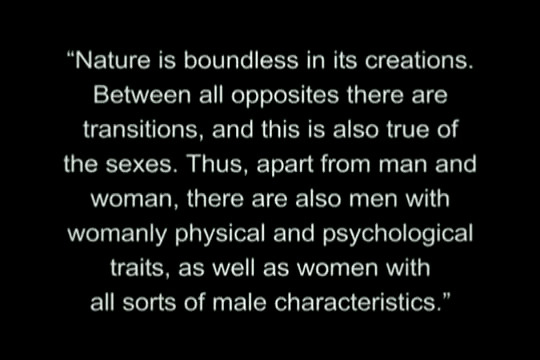



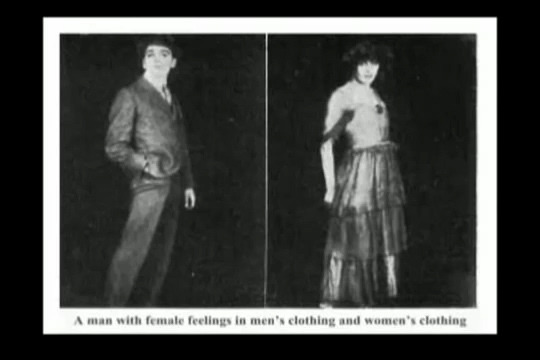
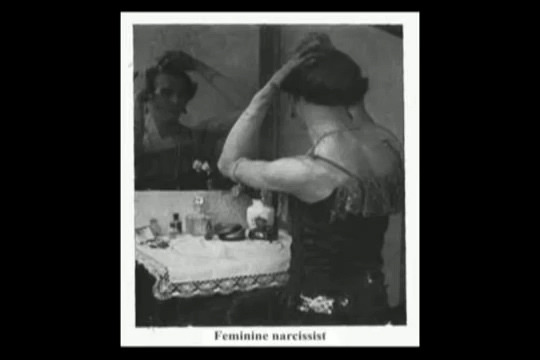


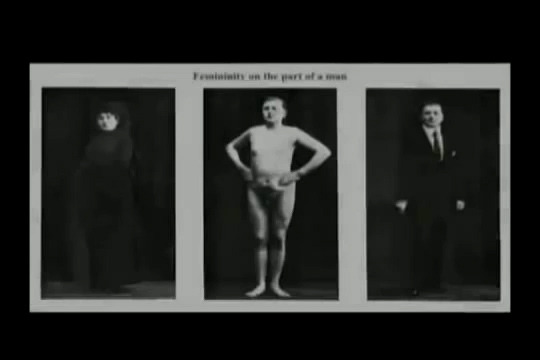
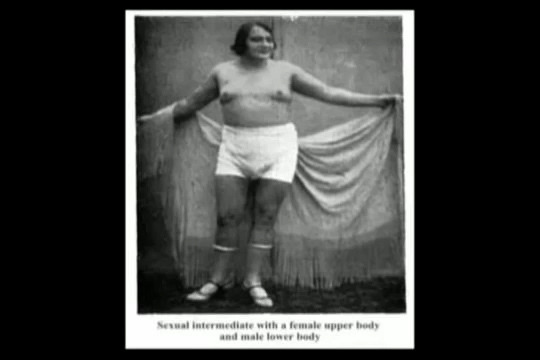




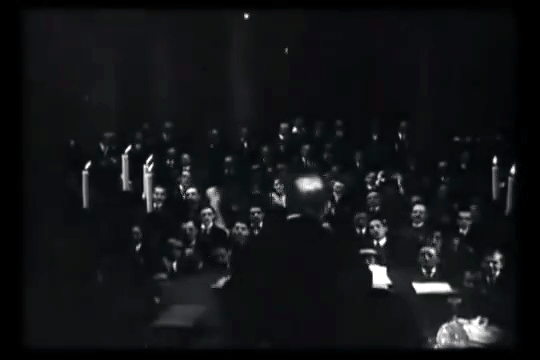
Dr. Magnus Hirschfeld lecturing on sexology in Different From the Others (1919 dir. Richard Oswald), a silent film arguing against German legal code Section 175, which criminalized homosexuality. Parts of the film are lost due to the later Nazi government's attempt to destroy all copies of it.
#pictures of queer people from decades ago and in this case over a hundred years ago make me so. like. god#also watching this film and realizing that was the actual magnus hirschfeld on film trying to educate people on gender & sexuality#as early as 1919. fucking hell man!!#also wanted to add that last gif to really emphasize how many people wanted to work on this film. how many people sat in that lecture hall#to be a part of making this activist film about normalizing queerness. in 1919. that's so many people#ntm crew and the other actors and everyone who pieced it back together when it was burned#and translated it#and made the cards in between saying what was supposed to happen in the lost scenes#:(#cricket gifs#magnus hirschfeld#different from the others#long post#queer history#lgbt#lgbt history
84 notes
·
View notes
Text
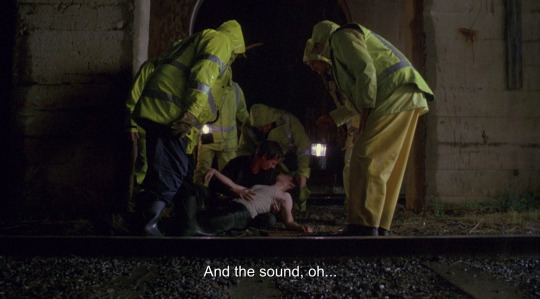
Film frames that are paintings
#like minds 2006#murderous intent#2006#beautiful cinematography#Early 2000s were a crazy time for Queer Representation in film#Australian film#UK Film#eddie redmayne#tom sturridge#toni colette#queer thriller#you can go watch this on Freeve for free btw#the lamentation of Christ
19 notes
·
View notes
Text
@beatingheart-bride
"I had no idea," Randall admitted, as he held Emily close, rubbing her arm gently to bring her some comfort (as well as to bring himself some too, given everything weighing on his mind as well). "I...there's a lot I didn't know they'd say since you got here!"
His parents offering her the key to the house as a gesture of trust, being so sympathetic to her story when they heard it, wanting her to have a place in their family through their marriage, assuring her that she would have their support no matter what...it was all completely unexpected to him, especially in the face of their previous rejection of her, but it was far from being an unwelcome change of heart, that was for sure.
"I know it feels...really surreal, honestly, but...I'm still happy with how this has all gone since last night," he confessed, smiling lightly to her: How could he not be? His parents were able to mend fences and make amends with Emily, they'd gotten to truly know her, to trust her, and had come to care for her, enough to welcome her into their home and their family with open arms. It was the outcome he'd hoped for that night he brought Emily home to reveal the big news to them, and although that outcome had been delayed, he was glad it came to fruition after all.
The elephant in the room was still there, of course-the topic of mortality versus immortality, a life shared eternally, or to be doomed to be parted once again by age and time...but Randall just didn't want to think about it now. All he wanted to think about was Emily, the sensation of her in his arms, and how at peace he was with her.
#((it is! so many roles have a revolving door of actors behind them; so to see mancini stick with the originals))#((is genuinely refreshing; and even if scheduling conflicts arise; he makes it work!))#((that being said it really is a shame 'seed' did so poorly; because glen and glenda *are* genuinely interesting))#((and their story was defidently ahead of its time for the early 2000s!))#((it's also a nod to ed wood and his film 'glen or glenda'; which touches on intersexuality; crossdressing; and transgenderism))#((and although its portrayals are very much fair for its day in the 1950s; it still has a resonance))#((and considering ed wood himself was a queer filmmaker; much like mancini himself))#((i can see why he'd want to pay tribute to those who came before; and i think he did it very well with glen and glenda!))#((again; it'd be nice to see more of gg in the future; and maybe they'll go toe-to-toe with their parents again next season!))#outofhatboxes#beatingheart-bride#V:Dark Shadows
5 notes
·
View notes
Text
On April 1, 2001, Cecil B. Demented was screened at the Night Visions Film Festival.

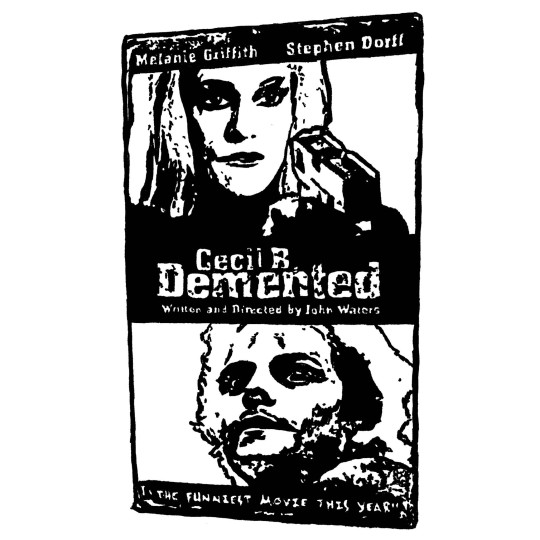







#cecil b. demented#john waters#melanie griffith#stephen dorff#comedy movies#black comedy#satire#queer film#queer cinema#queer artwork#2000s movies#early 2000s#dreamlanders#movie art#art#drawing#movie history#pop art#modern art#pop surrealism#cult movies#portrait#cult film
2 notes
·
View notes
Text

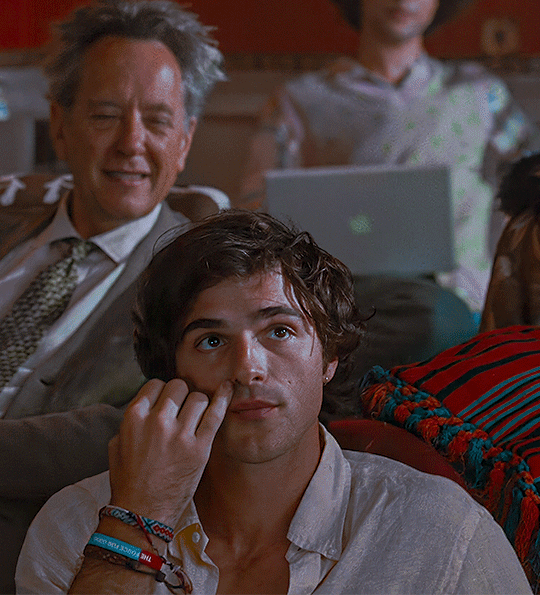
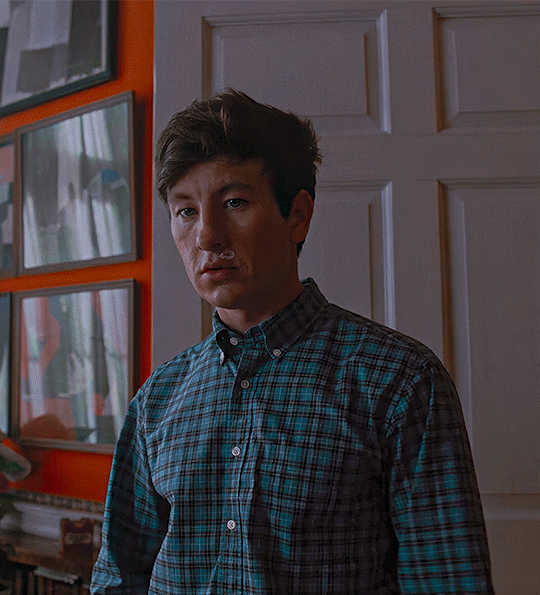
SCENES FROM A MARRIAGE | 💝 Protectiveness
Felix & Oliver for dir. Emerald Fennell · Saltburn (2023)
#barry keoghan#jacob elordi#saltburn#perioddramaedit#filmedit#saltburn 2023#film#movie#felix x oliver#queer#lgbt#felix catton#oliver quick#homoeroticism#emerald fennell#periodedits#period drama#early 2000s
1K notes
·
View notes
Text
i dont know if i made a mistake but i’m so stressed out right now damn it
#there’s the most beautiful sounding queer early 1900s love story set in the countryside filming in early august and they’re looking for a co#stumer with the costume design being done already and i just asked about it because i’ve just been so interested in that project from afar s#ince i heard the pitch and my thinking is since the project i’ve already attached myself to is planning filming for november - i have good t#ime until this new one starts filming where i dont yet have to so urgently be working on the nov. one#AND even after filming this new one if i do it i’ll still have good-ish time. i think. maybe. so yeah.#because my biggest nightmare is doing two things at the same time even the slightest so#and like to reiterate: this new one already has the planning done so i’d only have to source the costumes and do the fittings + filming and.#get this. WITH NOT ONE BUT TWO ASSISTANTS which is also a luxury i have NEVER had during all of school#so like??#idfk but i’m anxious as hell now#and absolutely won’t be sad if i dont get it lmao#it talks#janna’s film school diaries#idk which way i want this to go but at least i won’t have to regret not making a move which i was a little. so now i’m equally as happy with#any outcome
3 notes
·
View notes
Text
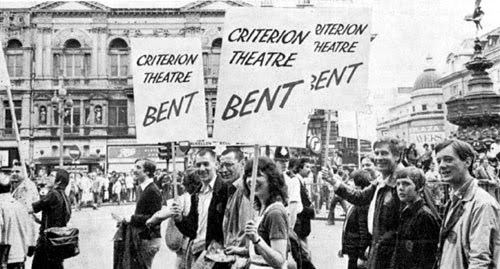
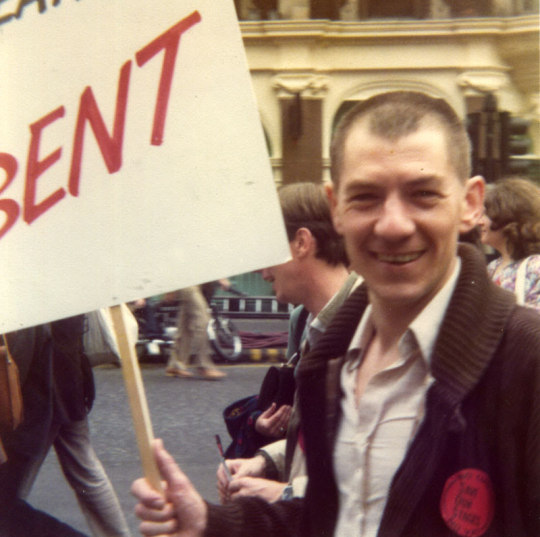
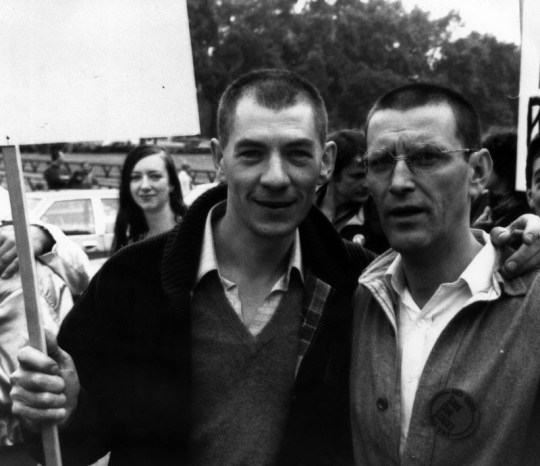
On the 24th of July 1979 the cast of Bent, including stars Ian McKellen and Tom Bell, joined members of other West End productions in protesting increased VAT on theatre tickets. In August, McKellen wrote a piece for Plays and Players magazine:
"The march through London's West End on 24 July was a high-spirited and invigorating experience. At least 4,000 members of British Actors' Equity were on parade, representing every theatre in the country. I was under the Criterion Theatre's banner with the cast of Bent, who were reinforced by the box-office and stage staff and by our manager, Ian Albery. At a brief rally at the Opera House in Covent Garden, its director John Tooley welcomed us all; Trevor Nunn was there with the Royal Shakespeare Company and Peter Hall cabled his support from the National Theatre. Such unity of workers and employers, of commercial and subsidised theatres, was an example to other troubled industries. But then, we had an urgent case to present to the House of Commons, where the day ended as we lobbied our Members of Parliament."
#100plays#bent#martin sherman#moder drama#modern theatre#queer theatre#ian mckellen#tom bell#plays and players#transcript#quote#i should add that McKellen was actually something of a fencesitter#and whilst he deplored the taxing of theatre attendees under tory rule he was equally as sceptical of the WRP and Corin and Vanessa#Redgrave‚ who were calling for the nationalisation of theatres‚ describing both alternatives as 'barbarous'#the redgraves and the 'far left' they represented seem to have been a habitual irritant to McKellen‚ who wrote several pieces critical of#their influence on Equity (the actor's union for which McKellen remains a spirited champion). he was‚ though‚ in favour of the closed shop#approach Equity took until Thatcher made the process illegal in the early 80s#Bell‚ by comparison‚ was not a regular theatre star‚ having made his name in the British kitchen sink dramas and new wave films of the 60s#and mostly kept to tv and film ever since; Bent was a rare starring role on stage. Bell considered television better suited to his talents#and indeed the previous year had seen him BAFTA nominated in Trevor Preston's crime drama Out and winning glowing reviews as Adolf#Eichmann in controversial US miniseries Holocaust. nor was he as politically engaged as his costar‚ though he will forever have my#respect for drunkenly heckling Prince Philip at an awards ceremony early in his career (a move which almost certainly affected his#ability to win leading roles for some years)
18 notes
·
View notes
Photo

Memphis Marine Hospital
Canon FT-QL
Kodak Gold 200
6.8.2019
#photography#queer artists#35mm#urbex#abandoned#architecture#hospital#works progress administration#wpa#memphis#tennessee#filmisnotdead#film#vintage#like the former factory in sheboygan this has now been turned into apartments#I'm actually really happy about that!#I think the construction we saw around it when we were there must have been the early stages of that renovation
16 notes
·
View notes
Text


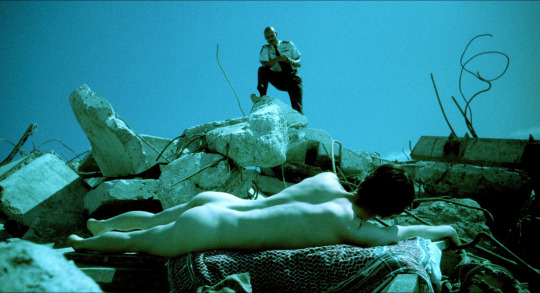
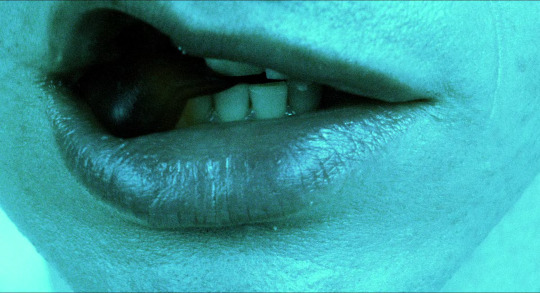
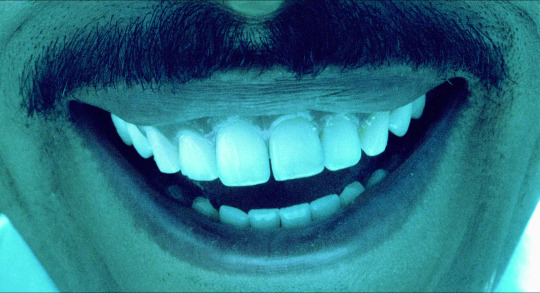
Hedwig and the Angry Inch (2001)
Director: John Cameron Mitchell
Cinematography: Frank G. DeMarco
Production Design: Thérèse DePrez
Art Direction: Nancey Pankiw
#cinematography#film stills#movie stills#hedwig and the angry inch#john cameron mitchell#maurice dean wint#cult classic#queer film#i could write a dissertation about this movie and not entirely in a good way#2000 films#early 2000s#2000s movies#2000s aesthetic
125 notes
·
View notes